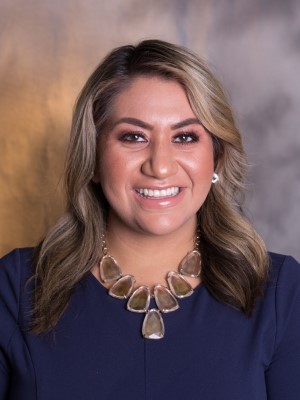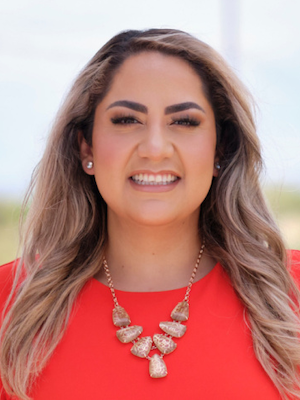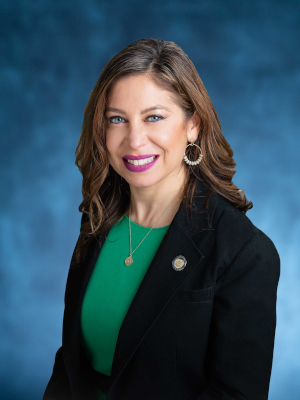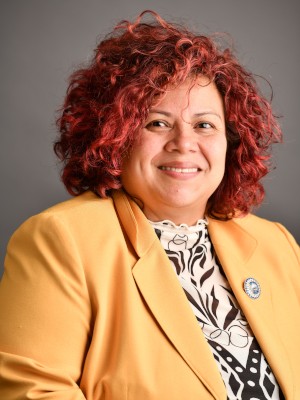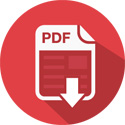2023-15
Educating and Easing the Burden of Period Poverty
Sponsored by Asw. Gabriela M. Mosquera (NJ), Rep. Alma Hernández (AZ), Rep. Consuelo Hernández (AZ), Asm. Jessica González-Rojas (NY), Del. Aijalon Cordoza (VA), Rep. María Pérez (NH), Rep. Lillian Ortiz-Self (WA), Rep. Marcelino Quiñonez (AZ) and Del. Joseline Peña-Melnyk (MD)
Reported to the Caucus by the NHCSL Healthcare Task Force
Rep. Alma Hernández (AZ), Chair
Unanimously ratified by the Caucus on December 2, 2023.
WHEREAS, “Period Poverty” refers to inadequate access to menstrual hygiene products and clean facilities to use them; [1] and,
WHEREAS, while nineteen (19) states have removed the sales tax on period or menstrual hygiene products in recent years, twenty-one (21) states [2] still impose this regressive “tampon tax,” making these medically necessary products more difficult for low-income persons to afford; [3] and,
WHEREAS, according to a September 2023 poll of women and other persons who menstruate by the advocacy coalition Period, 23% of teen respondents and 34% of adult respondents have struggled to afford period products; and 25% of teens are unable to do schoolwork because of a lack of access to products, with “teens of color and lower-income students are more likely to be impacted by access issues” [4] and Hispanic teens “more acutely [agreeing] that too many people miss valuable school time because they do not have access to period products;” [5] and,
WHEREAS, in the same poll, 40% of teens and 52% of adults said they have worn period products for longer than recommended, [6] which, according to the FDA, puts them at risk for infection or even toxic shock syndrome; [7] and,
WHEREAS, others who lack access to menstrual hygiene products are forced to use potentially unhygienic alternatives, such as diapers, rags, newspapers, or socks; and,
WHEREAS, federal statutes and regulations prohibit safety-net programs for low-income individuals, such as Medicaid, the Supplemental Nutrition Assistance Program (SNAP), and the Special Supplemental Nutrition Program for Women, Infants, and Children (WIC), from providing enrollees with free menstrual hygiene products; and,
WHEREAS, food banks and homeless shelters often lack a reliable supply of menstrual hygiene products for clientele; and,
WHEREAS, incarcerated individuals and transgender individuals are disproportionately impacted by period poverty, since they lack the means or opportunity to access menstrual hygiene products easily, if at all; and,
WHEREAS, 53% of teens who menstruate say they rarely or never find free period products in school bathrooms and 64% in public bathrooms, while 89% think menstrual products are just as important as toilet paper or soap in public bathrooms; [8] and,
WHEREAS, as of August 2023, twenty-five states [9] and Washington D.C. have passed legislation to help students who menstruate have free access to period products while in school, but that legislation varies in quality:
- California, Connecticut, Hawaii, Maryland, Minnesota, New Jersey, New Mexico, Ohio and Oregon require free period products for students in schools and provide funding;
- Alabama, Arizona, Colorado, Georgia, Missouri, North Carolina provide funding for free period products for students in schools, but do not require them; and,
- Delaware, District of Columbia, Illinois, New Hampshire, New York, Nevada, Rhode Island, Utah, Vermont, Virginia, Washington require free period products for students in schools, but do not provide state funding; and,
WHEREAS, 45% of teens who menstruate report being affected by period stigma, with lower-income and Hispanic teens are more likely to report feeling that stigma; [10] and,
WHEREAS, a recent study found that college-age women who experienced period poverty at some point in the past year were more likely to report moderate or severe depression than women who did not experience period poverty; [11] and,
WHEREAS, pending before the US Congress, H.R.3646, the Menstrual Equity For All Act of 2023 [12] would:
- Prohibit sales taxes on period products;
- Provide states and localities with funds through the Social Services Block Grant program to support free menstrual products programs;
- Require Medicaid to cover the cost of menstrual products, which it cannot do today;
- Create a pilot program within the Temporary Assistance for Needy Families (TANF) program to help families in need access menstrual products;
- Give states the option to use federal grant funds to provide students in elementary and secondary schools with free menstrual products;
- Incentivize institutions of higher education to create pilot programs that provide free menstrual products to students;
- Ensure incarcerated individuals and detainees in federal (including immigration detention centers), state, and local facilities have access to free menstrual products, including requiring guidance on distribution;
- Allow homeless assistance providers to use federal grant funds that cover shelter necessities (such as blankets and toothbrushes) to also use those funds to purchase menstrual products, which they cannot do today;
- Direct large employers (with 100 or more employees) to provide free menstrual products for their employees in the workplace;
- Require all public federal buildings to provide free menstrual products in the restrooms.
THEREFORE, BE IT RESOLVED that the National Hispanic Caucus of State Legislators supports policies to combat period poverty by making menstrual hygiene products more available to those who menstruate; and,
BE IT FURTHER RESOLVED, that the National Hispanic Caucus of State Legislators specifically calls on state legislatures to exempt menstrual hygiene products from sales taxes, require and provide free, high quality menstrual hygiene products in schools, jails, detention centers and prisons, and mandate holistic education around menstrual health for all students, regardless of gender; and,
BE IT FINALLY RESOLVED, that the National Hispanic Caucus of State Legislators calls on Congress to enact H.R.3646, the Menstrual Equity For All Act of 2023 or any substantially similar legislation.
THE HEALTHCARE TASK FORCE RECOMMENDED THIS RESOLUTION TO THE EXECUTIVE COMMITTEE FOR APPROVAL. THE EXECUTIVE COMMITTEE APPROVED THIS RESOLUTION AT ITS MEETING OF NOVEMBER 17, 2023.
THE NATIONAL HISPANIC CAUCUS OF STATE LEGISLATORS AMENDED AND UNANIMOUSLY RATIFIED THIS RESOLUTION ON DECEMBER 2, 2023, AT ITS ANNUAL MEETING IN PHILADELPHIA, PENNSYLVANIA.
[1] While some prefer the rubrics “period equity,” or “menstrual equity,” polls show affected persons are more familiar with the term “period poverty.” See Thinx and PERIOD, State of the Period 2023, p. 4. Available at https://period.org/uploads/2023-State-of-the-Period-Study.pdf
[2] The states that still impose the “tampon tax” as of Nov. 2023 are Alabama, Arizona, Arkansas, Georgia, Hawaii, Idaho, Indiana, Kansas, Kentucky, Mississippi, Missouri, North Carolina, North Dakota, Oklahoma, South Carolina, South Dakota, Tennessee, Utah, West Virginia, Wisconsin and Wyoming. See https://www.periodlaw.org/
[3] Parija Kavilanz, Menstrual product makers form coalition to reimburse ‘tampon tax’ to shoppers (CNN, Oct 11, 2023).Available at https://www.cnn.com/2023/10/11/business/period-products-makers-coalition-tampon-tax/index.html
[4] Thinx and PERIOD, State of the Period 2023, p. 2. Available at https://period.org/uploads/2023-State-of-the-Period-Study.pdf
[5] Ibid. at p. 4.
[6] Ibid. at p. 2.
[7] US Food and Drug Administration (FDA), The Facts on Tampons—and How to Use Them Safely Available at https://www.fda.gov/consumers/consumer-updates/facts-tampons-and-how-use-them-safely
[8] Thinx and PERIOD, State of the Period 2023, p. 2. Available at https://period.org/uploads/2023-State-of-the-Period-Study.pdf
[9] https://allianceforperiodsupplies.org/period-products-in-schools/
[10] Thinx and PERIOD, State of the Period 2023, p. 2. Available at https://period.org/uploads/2023-State-of-the-Period-Study.pdf
[11] Cardoso, L.F., Scolese, A.M., Hamidaddin, A. et al. Period poverty and mental health implications among college-aged women in the United States. BMC Women's Health 21, 14 (2021). 3, https://bmcwomenshealth.biomedcentral.com/articles/10.1186/s12905-020-01149-5
[12] Available at https://www.congress.gov/bill/118th-congress/house-bill/3646


